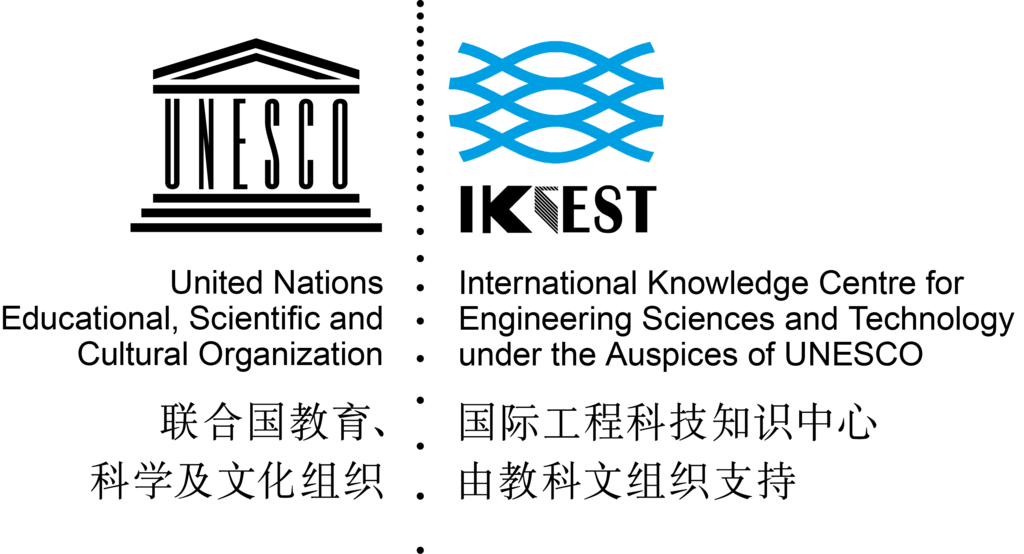In October 2015, an IKCEST delegation visited the UNESCO Headquarters to report on its work progress and technical framework, and was highly recognized. The UNESCO Headquarters also suggested that construction of IKCEST should be better oriented to UNESCO’s concerns like disaster risk reduction (DRR), and cooperation between IKCEST and UNESCO should be strengthened.
Later, the Disaster Risk Reduction Section of the Natural Sciences Sector of UNESCO contacted IKCEST and put forward specific ideas for future cooperation with IKCEST and proposed to hold an international video conference to discuss relevant issues. Soon, IKCEST held a preparatory meeting with a number of experts in relevant fields being present.
In the following two months, IKCEST and the DRR section held an international video conference to discuss future cooperation between the two sides. At the video conference, the two sides conducted in-depth discussions on issues of mutual concern and reached a couple of agreements and exchanged views by mails to refine the means of cooperation. Afterwards, IKCEST sent experts to India to participate in a seminar on the construction of data standards held from December 18 to 19, 2015.
On March 25, 2016, to promote cooperation with the UNESCO DRR Section, IKCEST held a seminar on Disaster Risk Reduction (DRR) meta database development, to discuss the development scheme of DRR meta database, including the aims, contents, direction and feasibility of such work. The attendees reached consensus on a number of issues and determined the direction of future development.
On April 26, 2016, IKCEST held a video conference with the UNESCO DRR section to further discuss the development scheme of DRR knowledge service system. In the process of building the meta database, the IKCEST will target the disaster meta data standards proposed by the UNESCO, and take advantage of characteristic resources owned by the institute to build a batch of disaster databases in different areas. Soichiro Yasukawa from the UNESCO DRR section said the UNESCO will provide strong support for IKCEST to build such a DRR meta-database.
From July 24 to 31, 2016, to meet the demand of UNESCO, the IKCEST delegation visited the DRR section of the UNESCO Headquarters, the International Research Institute for Disaster Science (IRIDeS) in Tohoku University, the International Centre for Water Hazard Risk Management (ICHARM) and the National Research Institute for Earth Science and Disaster Prevention (NIED) for survey on further need and possibility of cooperation for the Disaster Risk Reduction Knowledge Service development.
IKCEST delegation obtained a series of results from its visits to disaster risk reduction institutions in Japan: strengthened cooperation and exchanges concerning data sharing policies in the disaster risk reduction field in Japan; enhanced cooperation and exchanges with Japanese disaster risk reduction institutions in the areas of disaster loss statistical indicators and metadata standards and elements; and learned Japanese experience in social services for disaster risk reduction.
The delegation then visited UNESCO’s DRR Section, reported and exchanged ideas on the working goals, tasks and progress of IKCEST’s Disaster Risk Reduction Knowledge Services and further specified UNESCO DRR’s actual needs and direction of future cooperation. After reporting to and exchanging ideas with UNESCO’s DRR Section on the working goals, tasks and progress of IKCEST’s disaster risk reduction knowledge services, the delegation won recognition and support from UNESCO’s DRR Section. UNESCO’s DRR Section agreed to and supported the idea that IKCEST should organize DRR-related workshops and said that it would assist in the recommendation and invitation of international experts. UNESCO’s DRR Section also agreed to adopt a model of bilateral cooperation to implement the relevant tasks of disaster risk reduction database construction and knowledge services and put forward to IKCEST in writing the objectives and tasks of cooperation. By the end of 2016, UNESCO DRR Section officially issued a letter titled "Suggestions on Cooperation on Disaster Risk Reduction between IKCEST and DRR Programme of UNESCO", specifying the areas for cooperation in the future, which mainly focused on global disaster metadata standards, disaster database construction methodology, DRR knowledge service, international training and other relevant aspects.
To implement the results of the visits, IKCEST will continue to deepen its cooperation and exchanges with UNESCO’s DRR Section, pool consensus, and solidly push forward the construction of its disaster risk reduction knowledge service system, thus providing disaster risk reduction related data as well as knowledge services for the developing countries in the world.
Original Text (This is the original text for your reference.)
In October 2015, an IKCEST delegation visited the UNESCO Headquarters to report on its work progress and technical framework, and was highly recognized. The UNESCO Headquarters also suggested that construction of IKCEST should be better oriented to UNESCO’s concerns like disaster risk reduction (DRR), and cooperation between IKCEST and UNESCO should be strengthened.
Later, the Disaster Risk Reduction Section of the Natural Sciences Sector of UNESCO contacted IKCEST and put forward specific ideas for future cooperation with IKCEST and proposed to hold an international video conference to discuss relevant issues. Soon, IKCEST held a preparatory meeting with a number of experts in relevant fields being present.
In the following two months, IKCEST and the DRR section held an international video conference to discuss future cooperation between the two sides. At the video conference, the two sides conducted in-depth discussions on issues of mutual concern and reached a couple of agreements and exchanged views by mails to refine the means of cooperation. Afterwards, IKCEST sent experts to India to participate in a seminar on the construction of data standards held from December 18 to 19, 2015.
On March 25, 2016, to promote cooperation with the UNESCO DRR Section, IKCEST held a seminar on Disaster Risk Reduction (DRR) meta database development, to discuss the development scheme of DRR meta database, including the aims, contents, direction and feasibility of such work. The attendees reached consensus on a number of issues and determined the direction of future development.
On April 26, 2016, IKCEST held a video conference with the UNESCO DRR section to further discuss the development scheme of DRR knowledge service system. In the process of building the meta database, the IKCEST will target the disaster meta data standards proposed by the UNESCO, and take advantage of characteristic resources owned by the institute to build a batch of disaster databases in different areas. Soichiro Yasukawa from the UNESCO DRR section said the UNESCO will provide strong support for IKCEST to build such a DRR meta-database.
From July 24 to 31, 2016, to meet the demand of UNESCO, the IKCEST delegation visited the DRR section of the UNESCO Headquarters, the International Research Institute for Disaster Science (IRIDeS) in Tohoku University, the International Centre for Water Hazard Risk Management (ICHARM) and the National Research Institute for Earth Science and Disaster Prevention (NIED) for survey on further need and possibility of cooperation for the Disaster Risk Reduction Knowledge Service development.
IKCEST delegation obtained a series of results from its visits to disaster risk reduction institutions in Japan: strengthened cooperation and exchanges concerning data sharing policies in the disaster risk reduction field in Japan; enhanced cooperation and exchanges with Japanese disaster risk reduction institutions in the areas of disaster loss statistical indicators and metadata standards and elements; and learned Japanese experience in social services for disaster risk reduction.
The delegation then visited UNESCO’s DRR Section, reported and exchanged ideas on the working goals, tasks and progress of IKCEST’s Disaster Risk Reduction Knowledge Services and further specified UNESCO DRR’s actual needs and direction of future cooperation. After reporting to and exchanging ideas with UNESCO’s DRR Section on the working goals, tasks and progress of IKCEST’s disaster risk reduction knowledge services, the delegation won recognition and support from UNESCO’s DRR Section. UNESCO’s DRR Section agreed to and supported the idea that IKCEST should organize DRR-related workshops and said that it would assist in the recommendation and invitation of international experts. UNESCO’s DRR Section also agreed to adopt a model of bilateral cooperation to implement the relevant tasks of disaster risk reduction database construction and knowledge services and put forward to IKCEST in writing the objectives and tasks of cooperation. By the end of 2016, UNESCO DRR Section officially issued a letter titled "Suggestions on Cooperation on Disaster Risk Reduction between IKCEST and DRR Programme of UNESCO", specifying the areas for cooperation in the future, which mainly focused on global disaster metadata standards, disaster database construction methodology, DRR knowledge service, international training and other relevant aspects.
To implement the results of the visits, IKCEST will continue to deepen its cooperation and exchanges with UNESCO’s DRR Section, pool consensus, and solidly push forward the construction of its disaster risk reduction knowledge service system, thus providing disaster risk reduction related data as well as knowledge services for the developing countries in the world.








 User Center
User Center My Training Class
My Training Class Feedback
Feedback












Comments
Something to say?
Login or Sign up for free